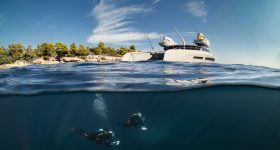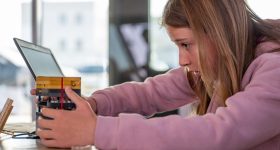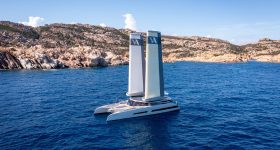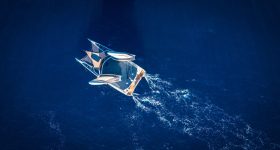Mediterranean missions: Greece in October 2025
A new stage for Monaco Explorations
After the Indian Ocean in 2022, Explorations de Monaco is launching the Mediterranean Missions in 2025, which will run until 2030. Greece is the first stop: a natural starting point for a campaign that combines science, diplomacy and awareness-raising.
A cradle of maritime civilizations, Greece combines exceptional biodiversity, committed institutions and a dynamic civil society. It shares a common vision with Monaco: to consider the sea as a common asset to be protected.
A word from the Chef de Mission
Supporting initiatives, federating players, pooling resources, explaining, acting in the field, contributing to the dissemination of knowledge, convincing through government action, mediation and science: we’re going to do our utmost to help create the right conditions for the success of this collective undertaking.
Legend
Xavier Prache Chef de Mission - Director of Société des Explorations de Monaco
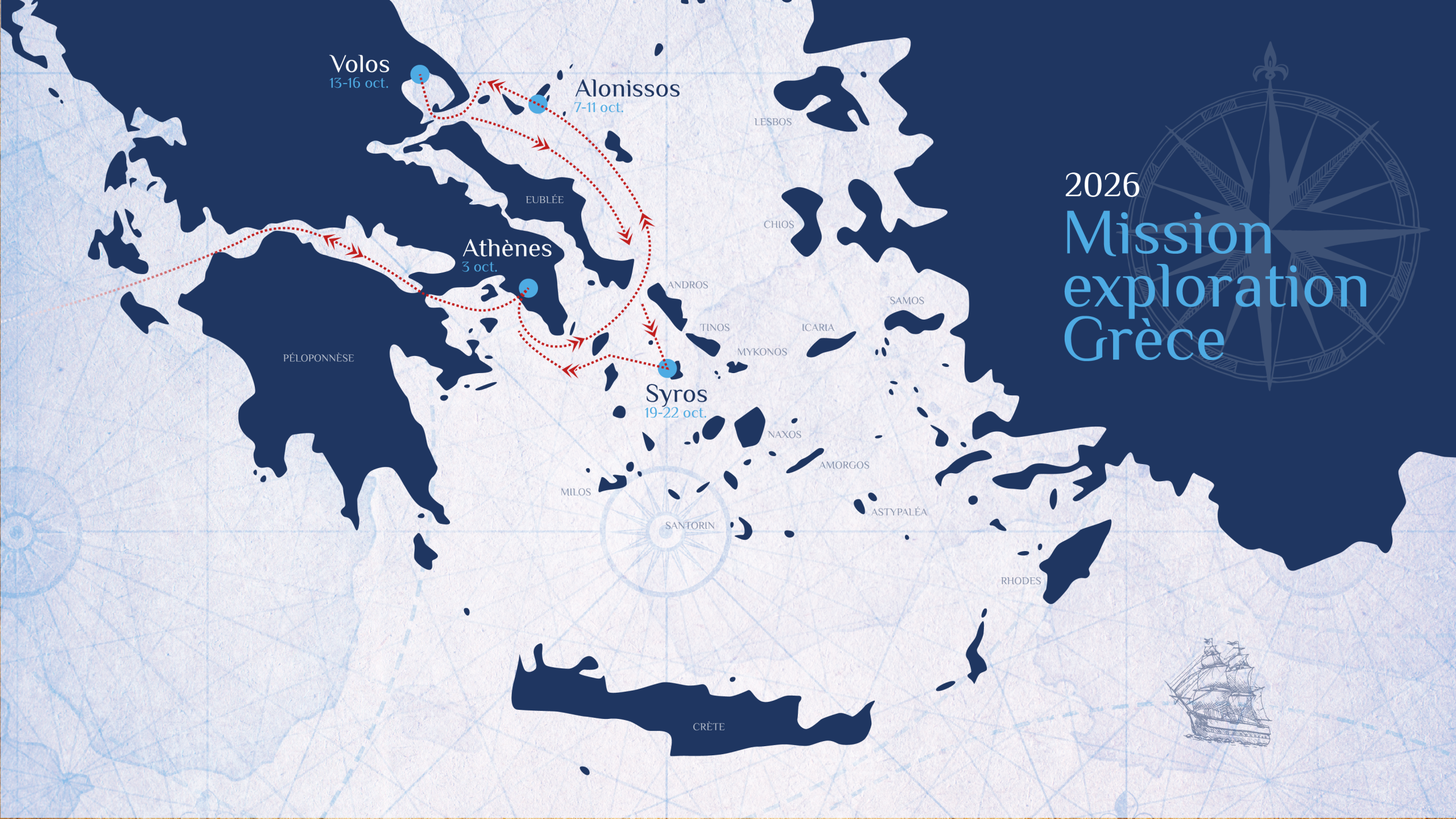
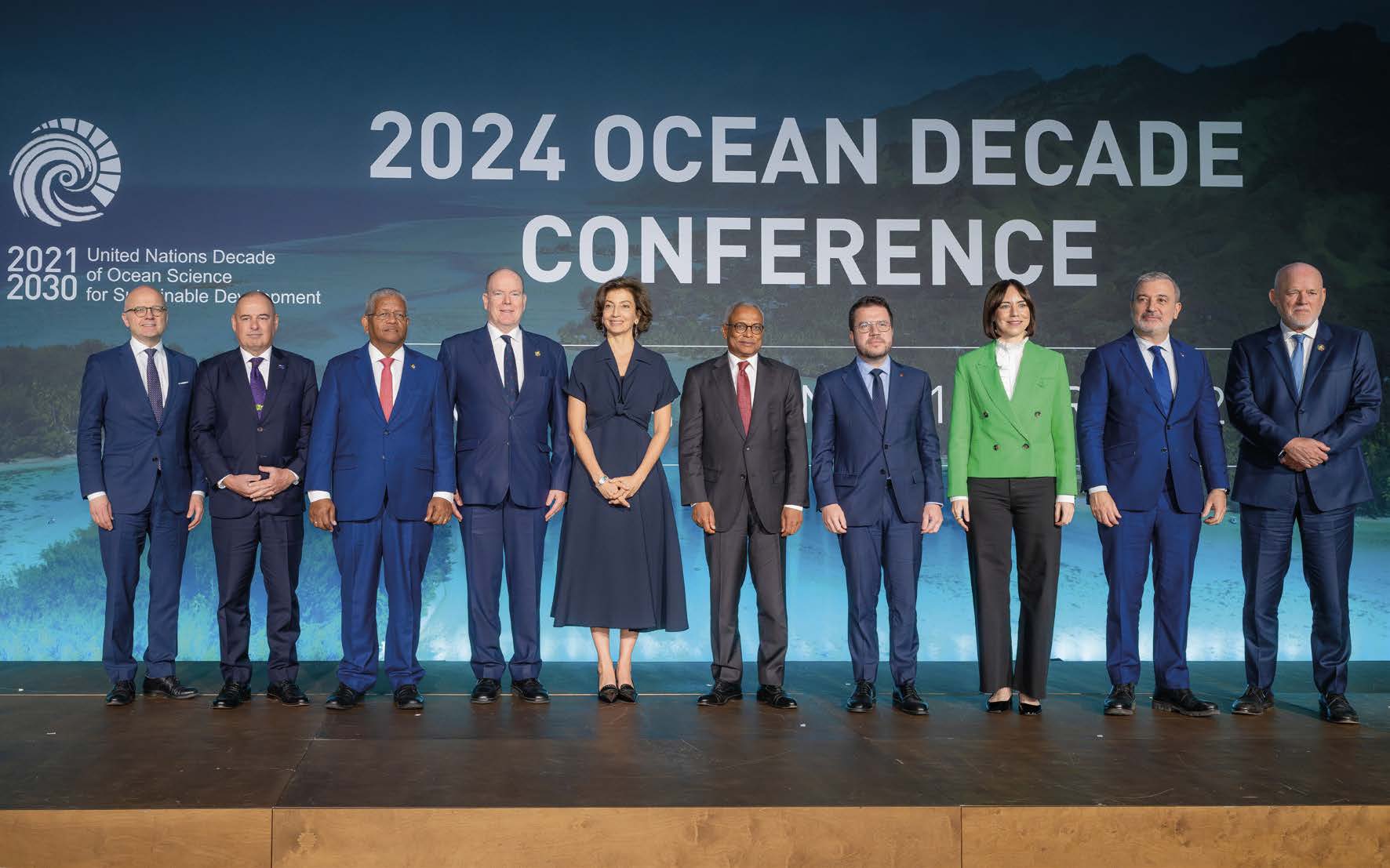
Mission objectives
- Enhance scientific knowledge: understand connectivity between pelagic and benthic environments, the spread of invasive species and the impacts of pollution.
- Support the governance of Marine Protected Areas (MPAs ): provide practical ecological monitoring tools, strengthen local capacities, share proven methodologies.
- Environmental diplomacy: bringing Monaco and Greece closer together within a Mediterranean framework of cooperation.
- Mediation and awareness-raising: putting science at the service of the public and mobilizing citizens, especially the younger generations.
Posts written during the Mediterranean Missions
An innovative vessel: the MODX 70-01
The MODX 70-01 is an electrically powered catamaran. Equipped with Aeroforce® inflatable wings, photovoltaic panels, hydrogenerators, and built with recyclable materials, it illustrates sober, silent and environmentally-friendly sailing.
Although it is not a research vessel in the strict sense of the term, it does provide a working space for light scientific instruments and coastal environmental monitoring. Through its demonstrations, workshops and visits, it is also a tool for mediation and raising awareness of the ecological transition in the maritime sector.
Science at the heart of the mission
The Greece mission is deploying an ambitious two-dimensional scientific program:
- Local: including N.E.C.C.A., the University of Thessaly, the Hellenic Center for Marine Research and MPA managers.
- Regional: integrated into large-scale Mediterranean projects and beyond.
BGC-Argo-ION © N. Mayot
Regional projects
- Plankto-Med: participatory plankton collection to measure invisible biodiversity, compared with satellite data (NASA/ESA).
- BGC-Argo-ION: autonomous floats measuring temperature, salinity, pH, oxygen and plankton biomass at depths of up to 2,000 m, and continuous measurements of seawater chemical qualities.
- SailingBox (SOOP): on-board devices to measure pH, oxygen, temperature and salinity in real time using accessible sensors.
- Participatory bathymetry (OHI ): collection of seabed depth and topography data via onboard systems.
Locally-based projects in Greece
- MAR4PAST: monitoring marine forests and their resilience to human pressures.
- EXOFISH-MED: participatory census of exotic species with divers and MPA managers.
- Marine forests and microplastics: studying the role of coastal ecosystems in capturing plastic pollutants.
Pterois miles - Lionfish © Virginie Raybaud
Posidonia marine forest (Posidonia oceanica) in the Mediterranean Sea © Pommeyrol Vincent
Camera BRUVS - Monaco © DR
Demonstration of scientific tools
In Volos, MODX 70-01 will be transformed into a technology transfer platform. Three devices will be presented to MPA managers and researchers:
- BRUVS cameras: baited and submerged video system for surveying marine fauna.
- Plankto-Med: frugal tools to analyze planktonic diversity.
- COSMA: submersible systems using photogrammetry and AI to map the seabed.
The aim of these demonstrations is to foster lasting collaborations and make science more accessible to local managers.
The Greece mission is a diplomatic lever. It promotes :
- the consolidation of relations between Monaco and Greece through the N.E.C.C.A. ;
- strengthening Mediterranean cooperation on MPAs, research and sustainable governance;
- promoting local initiatives in major international forums(Our Ocean, Biodiversity Summits, Decade of Ocean Sciences).
The presence of H.S.H. Prince Albert II at Alonissos embodies this commitment and highlights the role of MPAs in preserving the Mediterranean.
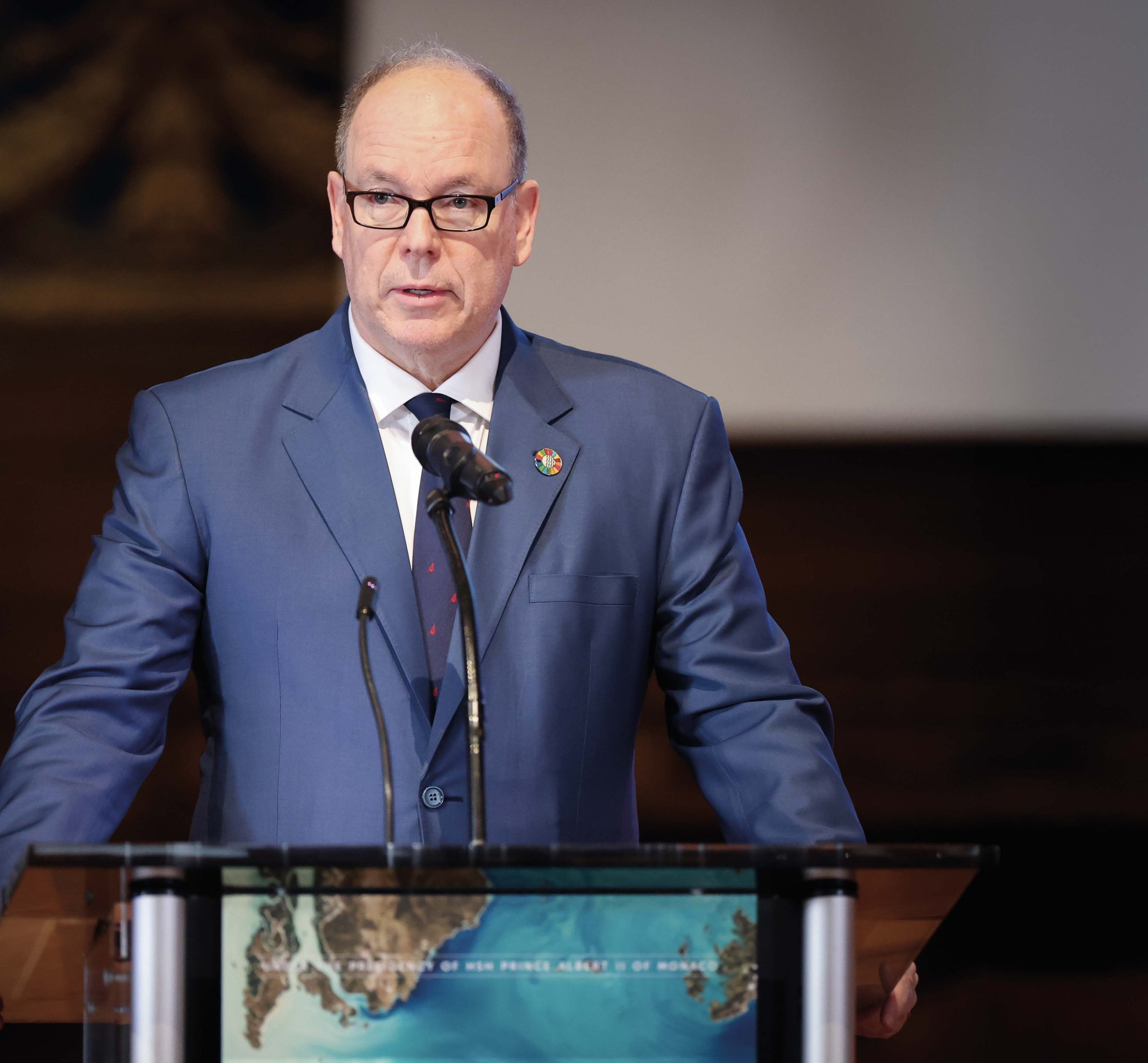
ImmerSEAve VR - Oceanographic Museum of Monaco
Institut Océanographique de Monaco - Frederic Pacorel
Mediation and awareness-raising
The mission is deploying a range of initiatives to reconnect society with the sea:
- Travelling exhibition: “Time for Action: Mediterranean Marine Protected Areas”, on view in Athens in October 2025.
- Mediterranean Sea” workshop: a participatory approach to thinking about a sustainable future. Workshop developed by the Oceanographic Institute of Monaco.
- Living Water” workshop: discover plankton with the Curiosity microscope.
- ImmerSEAve VR: virtual immersion in Mediterranean habitats (seagrass beds, reefs, underwater forests), developed by the Monaco Oceanographic Institute.
Each stop becomes a laboratory for exchange with the public, especially young people.
